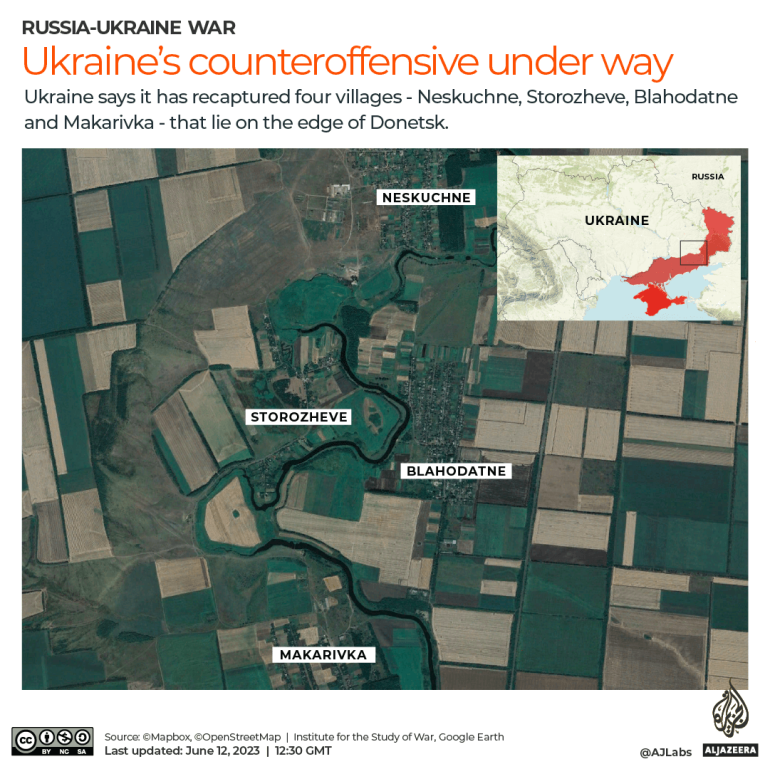
The speaker of Canada’s House of Commons has apologised for praising an individual who served in a Nazi unit during World War II in a session attended by Prime Minister Justin Trudeau and visiting Ukrainian President Volodymyr Zelenskyy.
Speaker Anthony Rota recognised Yaroslav Hunka, 98, as a “Ukrainian hero, a Canadian hero” before the Canadian Parliament on Friday, saying “we thank him for all his service”.
Hunka served in World War II as a member of the 14th Waffen Grenadier Division of the SS, according to the Friends of Simon Wiesenthal Center, a Jewish human rights group, that demanded an apology.
The centre said Hunka’s ties to the Nazi war machine “are well-documented”. Both Zelenskyy and Trudeau joined in acknowledging Hunka during the parliament session with applause.
Rota took responsibility for what he characterised as an oversight, calling the initiative “entirely my own”.
“I have subsequently become aware of more information which causes me to regret my decision,” he said in a statement on Sunday, offering his “deepest apologies to Jewish communities in Canada and around the world”.
He reiterated his apology on Monday in Parliament, telling Canadian lawmakers that he was “deeply sorry” for his gesture and remarks.
“I would also like to add that this initiative was entirely my own,” Rota said. “No one, including you – my fellow parliamentarians – or the Ukraine delegation was privy to my remarks prior to their delivery.”

Standing ovations
The recognition came following the visit to parliament by Zelenskyy, who thanked Canada for its assistance in Ukraine’s war against Russia.
Following Zelenskyy’s remarks, Rota acknowledged Hunka – who was seated in the gallery – praising him for fighting for Ukrainian independence against the Russians.
Hunka received two standing ovations from those gathered. As Canadian lawmakers cheered, Zelenskyy raised his fist in acknowledgement and Hunka saluted.
“At a time of rising anti-Semitism and Holocaust distortion, it is incredibly disturbing to see Canada’s parliament rise to applaud an individual who was a member of a unit in the Waffen-SS – a Nazi military branch responsible for the murder of Jews and others,” the Friends of Simon Wiesenthal Center said in a statement.
“An explanation must be provided as to how this individual entered the hallowed halls of Canadian parliament and received recognition from the Speaker of the House and a standing ovation.”
Russia’s RIA state news agency cited Russia’s ambassador to Canada, Oleg Stepanov, as saying the embassy will send a letter to Trudeau and a note to the Canadian foreign ministry on Monday.
“We will, of course, demand clarification from the Canadian government,” Stepanov was quoted as saying.
‘Optics are not good’
Dominique Arel, chair of Ukrainian studies at the University of Ottawa, said the incident “is highly problematic”.
“We have the issue of symbolism here, the optics of serving in a military unit whose logo is that of arguably the greatest criminal organisation in the 20th century … so obviously the optics are not good,” Arel told CBC News.
Trudeau in particular has come under pressure from opposition Conservative lawmakers, who have questioned how the Canadian prime minister’s office could have been unaware of Hunka’s background.
“Your statement doesn’t answer the questions around how this individual was vetted,” Andrew Scheer, the former Conservative Party leader, told Rota in the House of Commons on Monday.
Russia launched a full-scale invasion of Ukraine in February 2022, saying the goal of the “special military operation” was to denazify and demilitarise its neighbour. Zelenskyy is Jewish and lost relatives in the Holocaust.
Kyiv and its Western allies say Russia’s attack, which has killed tens of thousands and displaced millions, has been an unprovoked land grab. The United States says Moscow’s false justification for the war has been nothing but the Kremlin’s attempt to “manipulate international public opinion”.
B’nai Brith Canada’s CEO Michael Mostyn said it was outrageous that parliament honoured a former member of a Nazi unit.
Mostyn said Ukrainian “ultranationalist ideologues” who volunteered for the Galicia Division “dreamed of an ethnically homogenous Ukrainian state and endorsed the idea of ethnic cleansing”.
“We understand an apology is forthcoming. We expect a meaningful apology. Parliament owes an apology to all Canadians for this outrage, and a detailed explanation as to how this could possibly have taken place at the centre of Canadian democracy,” Mostyn said.







